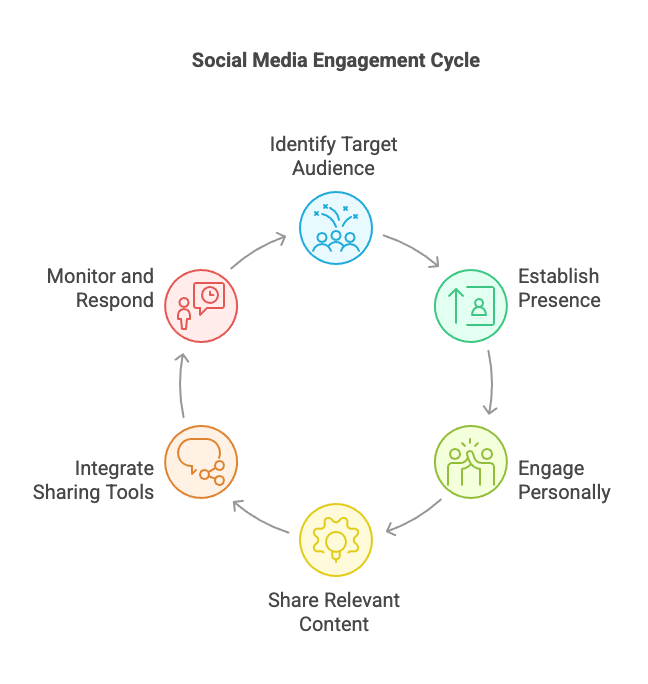As Google strives to improve its algorithms and make content more relevant to the user, social networks gain more and more importance in determining how your pages rank online. How often people talk about your brand, how often they share your articles, how often they like your posts; all of these factors play an important role in how well you’re going to do (though true to form, Google’s remained fairly tight-lipped about just how important).
One thing should be clear: if content is king, then social media is most definitely queen. There was a time when I would have argued that not every organization has something to gain from going social. I think, at least in this context, that such a time is long since passed. At this point, it’s not a question of “if” you should fit social media into your SEO strategy – it’s a question of “how.”
See, social networks offer far more than just an opportunity to improve your ranking. Establishing yourself on a social network brings with it a host of considerable benefits.
Chief among these is engagement. It’s a fairly simple concept – keep your customers/readers engaged, interested, and entertained, and they’ll keep coming back for more. Fail to keep them fascinated, and you’re probably losing them. Easy, right?
What makes social media so powerful
Is that it presents you with the perfect means of engaging with your target audience. This is because – if done right – social media lets you converse directly with your customers on a personal level. It lets you establish a dialogue with them, which in turn helps them put a human face to your brand. With an active, properly-managed social account, you can make the consumer feel as though the two of you are friends.
Engagement isn’t the only benefit, either. Particularly poignant or fascinating content can very easily go viral, accumulating hundreds, thousands, or even tens of thousands of shares in a matter of hours. Naturally, this sort of thing can lead to a huge influx of traffic to your site, all of which could potentially end up converting into loyal readers or customers.
So…how can you account for social media in your optimization strategy?
The first step is easy. Figure out which social network your target demographic tends to congregate on, and establish yourself there. Don’t try going for broke and running with every single social network you can; that’s simply wasted time and effort.

You also need to remember that
Although you’ll still be representing your organization or website, the people you’re interacting with want to see another human being. Treat it as a hobby as much as it is a job. Share interesting content relevant to your brand. Talk to and connect with people who catch your attention. Most importantly, make sure you post regularly and consistently, and always be sure to respond to queries, requests, and concerns in a timely manner
Where your website is concerned, you’re going to want to integrate sharing tools into your design, in order to allow visitors to more easily spread the word. This is absolutely vital – I can’t count the number of times I found a particular piece of content interesting, but didn’t bother to share it because the webmaster didn’t see fit to include something so simple as a “tweet” button.
You also want to be sure to link your social accounts from your website’s homepage, both to give fans a way to keep up with you outside the site and to give Google a social media profile or two to associate with your site.
Last, but certainly not least
Let’s talk about what type of content you’re running. While written content is never really going to go out of style, visual stuff – I’m talking pictures and videos – is slowly but surely beginning to dominate the web. It follows, then, that such content is much more likely to be shared, and significantly more likely to go viral. Don’t believe me? Just look at The Old Spice Guy.
Beyond all of the above advice, I’ve one final statement to make: even all the social networking success in the world won’t save you from mediocrity if your website doesn’t have substance. Focus on making everything you offer great before you start promoting it, otherwise you’re simply wasting your time.




